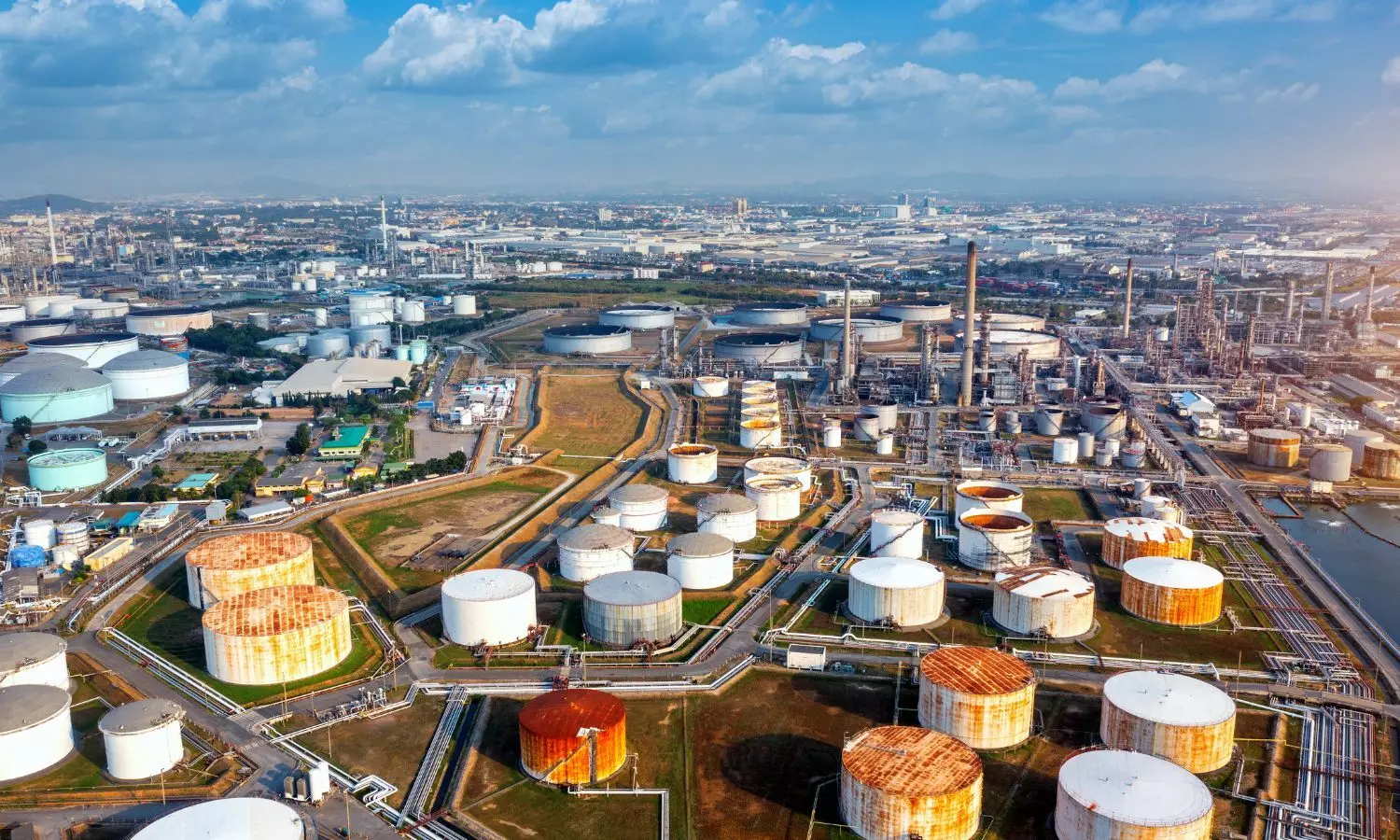Oil Industry Faces Challenges: China Slowdown, OPEC Adjustments
At APPEC industry leaders and investors are confronting revised oil price and demand forecasts.
Aerial view of gas and oil refinery Oil Industry. (Image Courtesy; freepik)

The oil industry’s optimism is fading as top executives convene in Singapore this week.
The economic slowdown in China, shifts in global energy dynamics, and the possibility of increased crude supply are all affecting refiners and producers, leading to decreased processing margins and reduced market volatility.
At the Asia Pacific Petroleum Conference (APPEC), industry leaders and investors are confronting revised oil price and demand forecasts.
Recent declines in global oil prices have erased this year’s gains, and OPEC has had to delay planned increases in supply to prevent an oversupply in the market.
China’s economic difficulties are a major concern. With ongoing contractions in factory activity, disappointing loan data, and a weak job market, forecasts suggest that China may not meet its growth target.
The slowdown, combined with rising use of electric vehicles and high-speed rail travel, has led to reduced crude oil imports.
OPEC and its allies are also facing challenges. Despite postponing additional supply and navigating issues with Libyan production, they have struggled to reverse falling oil prices.
Traditional oil suppliers are losing market share in China, and Saudi Arabia’s investments in Chinese refineries have not fully addressed the decline.
In contrast, Singapore is seeing growth.
The city-state’s port remains a key bunkering hub and financial centre, benefiting from increased shipping activity and shifts in global trade routes.

